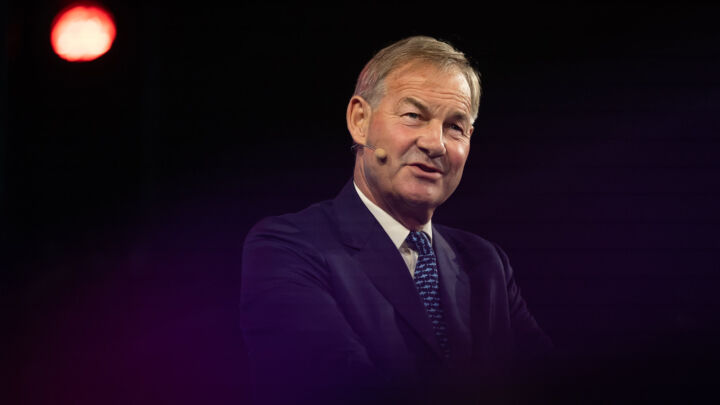The danger of turning addicts into ‘victims’
Philip Seymour Hoffman’s death was the result of his own choices, not punitive drug laws.

Want unlimited, ad-free access? Become a spiked supporter.
Comedian turned politico Russell Brand is well versed in talking bollocks. Most of what comes out of his mouth or flows from his pen is rarely worthy of comment, yet his latest ‘contribution’ to the drugs debate following the tragic death of actor Philip Seymour Hoffman from an overdose is not only inane, but positively harmful.
Certainly, the fact that Brand is an ex-addict himself may equip him to contribute to the drugs debate, and yes, he is right to draw attention to the inefficacy of current drug laws and the futile war on drugs. But for Brand to suggest that the recent death of Philip Seymour Hoffman was an inevitable consequence of those laws, as he did in a recent piece for the Guardian, is nonsense. While there are many arguments for decriminalising Class A drugs, a mere change in the law would not have prevented the tragic loss of Philip Seymour Hoffman. He was an addict with a long-standing history of substance abuse, and while there are many Class A drug users out there who manage to avoid the downward spiral into serious addiction, Hoffman didn’t. It is saddening whenever a human life is lost to drug addiction; that Hoffman was such a huge talent with so much more to give and achieve makes that loss all the more tragic. Yet his death was not ‘inevitable’, as Brand erroneously claims. It was an accident, albeit one aided by his own life choices and actions.
There is certainly validity in the argument that criminalisation makes drug use potentially more dangerous. At present, supply of drugs is controlled by criminal organisations who, in an effort to increase margins, ‘cut’ pure drugs with other dangerous substances, making the concentration of the drug more difficult to predict and harm or overdose more likely. However, Hoffman’s death was ultimately a consequence of his own misadventures, not current drug laws.
The most serious of Brand’s claims is that Philip Seymour Hoffman was a ‘victim’ of current drug legislation. Depicting those who seek their thrills in the artificial highs offered by drugs or who seek escape from their personal realities as ‘victims’ is not only mistaken, it is deeply damaging. Bestowing on such individuals the status of the victim is tantamount to saying that we as human beings have no control or volition over our own behaviour, that we are mere slaves to our impulses, totally lacking in self-will and the capacity to change our self-destructive behaviour. It is dehumanising because it robs us of our self-determination and our only means of influencing our lives: our human agency. Having worked in an alcohol and drug rehab centre in the past, and lost a friend to drug addiction, I am in no doubt that addicts need help, but they also need to take responsibility for their own choices and take steps to help themselves.
Humans have long relied on intoxicating substances to alter their states of consciousness or to numb the pain of negative life experiences; it is part of the human condition. Yet we need to ask ourselves why so many people today find their lives so lacking in purpose that they feel the need to resort to the artificial highs offered by drugs to inject a modicum of joy or meaning into them, or why others feel so demoralised that they depend on drugs as a means to escape from reality. As long as people feel the need for drugs there will always be fatalities, regardless of what laws are in place governing their use.
That drug use is so endemic in society today speaks volumes about the current state of humanity, of our lowered horizons and diminished expectations. No laws can change our outlook on life, or change the course of its direction; only we have that power. We are not merely victims of circumstance; we are also the agents capable of bringing about its change. This is why society also needs to take some responsibility for encouraging the glamorisation of drug use. While it is certainly the case that the criminalisation of drugs fuels that glamorisation, the current media obsession with exposing and revelling in the drug-related shenanigans of showbiz celebrities does little to discourage it. However, worst of all is the media depiction of celebrity drug users as victims, and those who battle addiction as ‘heroes’. Today, a stint in rehab is deemed a badge of honour rather than something to be ashamed of.
People should of course be free to consume and intoxicate themselves with whatever substance they so wish and, as long as they cause no harm to others, they should be free to do so without state interference. But that does not mean drug use is something to be celebrated, applauded or, in the case of those seeking help, fawned over. As Michael Fitzpatrick argued previously on spiked, we need to strive towards creating a cultural climate in which drug use, while not stigmatised or criminalised, is ‘regarded with an element of social disapproval or disapprobation’. And this, as Fitzpatrick rightly contends, is not incompatible with arguments in favour of the decriminalisation of drugs.
However, decriminalisation can only be part of the solution. Certainly it would be a start, but let’s not kid ourselves, as Russell Brand seemingly does, that somehow legalisation would have prevented the tragic and untimely death of Philip Seymour Hoffman. Decriminalisation will not get to the heart of the problems that lead people into a life of drug dependency, nor stop people taking the risks correlated with recreational drug use. Ultimately, drug use is a moral issue and as such needs to be debated and addressed from a moral perspective. Challenging the notion that those who choose to run the risks associated with drug use are ‘victims’ and by encouraging the idea that as active, human agents, we are ultimately responsible for our own actions, would be a good place to start.
Amanda Hunter is a writer based in Italy.
You’ve hit your monthly free article limit.
Support spiked and get unlimited access.
Support spiked and get unlimited access
spiked is funded by readers like you. Only 0.1% of regular readers currently support us. If just 1% did, we could grow our team and step up the fight for free speech and democracy.
Become a spiked supporter and enjoy unlimited, ad-free access, bonus content and exclusive events – while helping to keep independent journalism alive.
Monthly support makes the biggest difference. Thank you.








Comments
Want to join the conversation?
Only spiked supporters and patrons, who donate regularly to us, can comment on our articles.